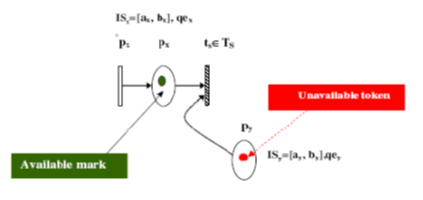


Indian Journal of Science and Technology
DOI: 10.17485/IJST/v14i42.1181
Year: 2021, Volume: 14, Issue: 42, Pages: 3133-3143
Original Article
Anis Mhalla1*, Mohanned Gaied1, Dimitri Lefebre2
1Research Unit LASEE, National Engineering School of Monastir, Avenue Ibn El Jazzar, 5019, Monastir, Tunisia
2GREAH, Univ. Le Havre Normandie, 75, rue Bellot, 76600, Le Havre
*Corresponding Author
Email: [email protected]
Received Date:26 June 2021, Accepted Date:06 November 2021, Published Date:09 December 2021
Objectives: The key objective of this present article is the presentation of a control strategy which consists to compensate the disturbance as soon as it is observed. The main purpose of the proposed control strategy is to guarantee the respect of railway scheduling. The novel strategy allows compensating temporal disruption as soon as it is observed in order to avoid the time constraint violation and to respect planned scheduling. Methods: An algorithm that amends the measured disturbances by compensating the disruption along the mono-synchronized paths is presented. The proposed algorithm allows computing the available control margin for every controllable place. Findings: The main impartial is to compensate partially or totally the disturbance so as to avoid time constraint violation in railway transport networks. In these networks, time may be a significant parameter because it encompasses constraints to avoid adverse events. The temporal constraints which will arise on the railway network may degrade the planed schedules and consequently affect the availability of transportation systems. This leads to many problems in the decision and optimization of the studied transport systems. Novelty/Applications: This paper is devoted to the modeling and robust control of the Tunisian railway network. In this context, a novel robustness strategy is developed to compensate the time disruption in railway networks and to preserve the planned schedule.
Keywords: robustness; control; temporal disturbances; railway networks; Ptime Petri Nets
© 2021 Mhalla et al. This is an open-access article distributed under the terms of the Creative Commons Attribution License, which permits unrestricted use, distribution, and reproduction in any medium, provided the original author and source are credited. Published By Indian Society for Education and Environment (iSee)
Subscribe now for latest articles and news.